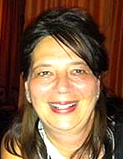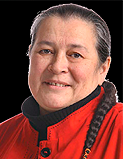Aboriginal Education Research Forum 2015
Greetings and Welcome
On behalf of all the staff at the Aboriginal Education Directorate and the Aboriginal Education Research Forum Planning Committee, Welcome. Aniin. Tansi. Boozhoo kakina awiya, Elders, presenters, delegates and volunteers to the 11th annual Aboriginal Education Research Forum, Shawane Dagosiwin. Our theme of this tenth anniversary year is “Enacting Engaging Research methods for Capacity Building: Community Indigenous Environmental Wellness for Individual Strengths” which will guide the 2015 agenda.
We anticipate you will enjoy your stay in Manitoba, the traditional territory of the Anishinaabe (Ojibway), Dakota, Dene, Ininew (Cree), Métis and Oji-Cree, and renew kinships and acquaintances with friends, colleagues and family from near and afar.
It is Manitoba’s privilege to host this conference, which is rich in the knowledge and wisdom that our Elders from Manitoba and other Nations share with us every year. We are honoured to receive as our keynote speakers Dr. Myra Laramee and Henry Jesus Villasante Floras.
Shawane Dagosiwin would not be possible without the financial and in-kind support of our esteemed sponsors. University College of the North; Red River College; University of Manitoba; United Way of Winnipeg; Manitoba First Nations Education Resource Center; Seven Oaks School Division; Brandon University; University of Winnipeg; Manitoba Education and Advanced Learning; Aboriginal and Northern Affairs; Manitoba Jobs and the Economy.
Thank you to all our sponsors who contributed in so many ways!
This conference is possible because of the collaborative work of the Planning Committee, whose members work diligently throughout the year to bring you this eventful gathering. Their efforts are truly appreciated. Also, we would like to acknowledge the special contribution of our conference volunteers and elders; Carmen Neufeld of Planners Plus, Inc. for all her tremendous hard work; and to the wonderful staff at the Victoria Inn.
To the Creator, thank you for gathering us here safely. Thank you for bringing us together and giving us the self-determination and liberty to join our voices together for the goodness and growth of our communities. Thank you for opening our minds and giving us the ability to think individually and as a collective and ask that our thoughts are pure so we are able to create new meaning, purpose and growth for ourselves, our families our communities and nations.
Helen Robinson-Settee and Staff at the Aboriginal Education Directorate
Keynote Speakers
Dr. Margaret M. Kress

“Leading, Learning, Listening, Loving: A Transformative Pedagogy for Aboriginal Education”.
Dr. Margaret M. Kress – Autumn Flower Woman (KEYNOTE CHANGE, Aboriginal Education Research Forum, May 19, 2015)
Margaret was born in the south of Saskatchewan, in the grasslands of Treaty Four territory and the Métis homelands. She is proud to claim and embrace her Métis ancestry, and she continues to honour her French, English and German ancestors. Margaret has held many instrumental roles including that of recreation director, community school coordinator, recreation therapist, and of course, teacher, for a variety of elementary, secondary and post-secondary students. As a sessional instructor for the College of Education, University of Saskatchewan, First Nations University of Canada and NORTEP (Northern Teacher Education Program), she has experienced the needs of beginner teachers and worked to hear all voices. As an advocate for and with Aboriginal and disabled peoples, she is mindful of the Indigenous principle of relationality. She currently holds the position of Academic Advisor within the School of Human Services and Community Safety at Saskatchewan Polytechnic. Within this portfolio, she advises thousands of students in Human Services and Early Education programs, in addition to supporting instructors, coordinators and program heads associated with these studies.
Margaret recently completed her PhD in transformative education at the University of Manitoba and provided a fresh understanding of Storywork in her thesis: Sisters of Sāsīpihkēyihtamowin – Wise Women of the Cree, Denesuline, Inuit and Métis Understandings of Storywork, Traditional Knowledges and Eco-justice among Indigenous Women Leaders. This research examined Indigenous women’s knowledge and leadership in relationship to resistances of environmental racism and the revitalization of kinships within traditional and distinct territories of what is known as Canada. Her current research builds on this work and it supports Aboriginal education, treaty education, inclusive education, ecological literacy and wellness, healing and youth resilience. It includes the deconstruction of colonial systems and institutions that marginalize many peoples. She has taught about the lived experiences, both her own and others, within the fields of critical disability theory, critical race theory, anti-oppressive pedagogies and human rights law, in the hope these stories will spur all peoples to a collective action for justice and peace. She continues to keep her feet on the ground and in the community as she works with the membership of the Lac La Ronge Indian Band as they engage in a collective search for mental health, wellness and healing. She believes in the importance of listening and hearing all voices in a journey to transformative and ethical Indigenous research and community development. Nothing is more critical than the carving out of a respectful and safe space to ensure Storywork does occur and endure.
She is happy to announce she will join the Faculty of Education and the MicMaq-Wolastoqay Centre at the University of New Brunswick in the fall of this year. She acknowledges with gratitude all elders and teachers who have mentored and guided her in this learning journey.
Dr. Myra L. Laramee

Myra Laramee is a member of the Fisher River Cree Nation. She is a grandmother, mother, sister, and daughter. These roles are of great importance to her and have been significant in shaping the person that she is today. She was born and raised in the city of Winnipeg and feels deeply about the value she has found in the diversity and multiplicity in our urban center.
Myra carries a traditional bundle for the Indigenous people of this territory and has made a vow of commitment to be a person of peace in the work that lies in her path. She personally believes that lack of knowledge amongst people is cancerous and spends most of her time seeking and imparting knowledge for capacity building and the development of truthful and peaceful relations.
Family and community are significant in our identities and the Elders, teachers and mentors in Myra’s life demonstrated their encouragement for her to reach her potential and maximize the importance she holds on the earth.
As a traditional woman she is responsible for the transmission of knowledge and ceremony for women and children through the use of a Tipi Lodge. Care of children has been and will continue to be one of the most important things she can do. It is her belief that in order to be the best helper she can be, she needs to make sure balance is a reality in her life. She believes that education can foster some of that balance and it is a tool which can help First Nations, Metis and Inuit people move in the direction of becoming sovereign people especially in the areas of language and identity.
Myra has been an educator for over 35 years and practiced as a teacher, counselor and administrator during that time. Upon retirement from this work in 2007 she became a Curriculum Writer at the Manitoba First Nations Education Resource Centre. Upon retirement form this position Myra became the Aboriginal Awareness Consultant for the Aboriginal Education Directorate, Manitoba Education and Advanced Learning in 2012.
She holds a Bachelor of Teaching, Bachelor of Education and Masters in Education. She successfully completed her PhD and graduated from the University of Manitoba in 2013 as Dr. Myra Laramee. Her research is in Indigenous Knowledge and practices as they related to teacher education. The theme of her thesis is in the area of the acquisition, utilization, research and writing of Indigenous Knowledge and is titled “Teaching and Learning as an Act of Love: An examination of the impact of seven traditional Indigenous teaching practices in teacher education and on teacher’s classroom practices. She describes how students who participated in an annual Summer Institute in Aboriginal Education made meaning of their experiences as learners in Indigenous knowledges and practices. This Institute ran during the years of 1994–2007.
Conference Agenda
| Time | Event/Activities |
|---|---|
| 7:00 a.m. | Pipe Ceremony
|
| 8:00 – 9:00 a.m. | Continental Breakfast |
| 9:00 – 10:30 a.m. | Opening Ceremony
Welcoming Remarks Keynote Speaker
|
| 10:30 – 10:45 a.m. | Health Break |
| 10:45 a.m.–12:15 p.m. | Concurrent Sessions 1
|
| 12:15 – 12:45 p.m. | Lunch – Centennial Ballroom |
| 12:30 – 1:15 p.m. | Cultural Entertainment
|
| 1:15 – 2:30 p.m | Concurrent Sessions 2
|
| 2:30 – 3:00 p.m. | Health Break |
| 3:00 – 4:15 p.m. | Concurrent Sessions 3
|
| Time | Event/Activities |
|---|---|
| 7:00 a.m. | Pipe Ceremony
|
| 8:00 – 9:00 a.m. | Continental Breakfast |
| 9:00 – 10:00 a.m. | Day Two Summary
|
| 10:00 – 10:15 a.m. | Health Break |
| 10:15 a.m.– 12:00 p.m. | Concurrent Sessions 4
|
| 12:00 – 1:00 p.m. | Lunch – Centennial Ballroom |
| 1:00 – 2:15 p.m. | Concurrent Sessions 5
|
| 2:15 – 2:30 p.m. | Health Break |
| 2:30 – 4:00 p.m. | Concurrent Sessions 6
|
| 4:00 p.m. | Closing
|